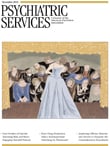Blame: A Novel
The book Blame is a fictional work reconstructing the life of Patsy, a professor and alcoholic, shortly before and for decades after the drunken car accident that killed a mother and child, sent her to prison, and forever altered her. For me, a psychiatrist who works daily with people who abuse or abused alcohol or are coming out of prison, this book provides useful insight into the mind of an alcoholic, illuminating detail into the rehabilitative potential of Alcoholics Anonymous (AA), and frightening detail into life in a prison setting.
Huneven skillfully reconstructs American history and fads, from the AIDS outbreak in the 1980s to the popularity of organics in the 2000s. However, her text is also uneven. On the one hand she creates a host of characters who appear more as cutouts than as developed personalities; on the other she provides a quick read and entrée to the worlds that some of my patients inhabit. A dramatic late turn makes for an interesting plot, but it does not fundamentally change the ending. The paper-thin character development, however, left me struggling in trying to answer the question of why I should care enough about Patsy to follow her story to that end. Patsy begins as a heavy, careless drinker. Before and after her torturous time in prison, she repeatedly chooses life mates who do not sustain her. It is a struggle to identify what about her is appealing, with the exception of her proper atonement toward the surviving family of the dead mother and child. But in trying to resolve my own indifference to her character, I realized that perhaps Huneven has admirably succeeded in capturing one view of the alcoholic: someone whose identity is so wrapped up in booze that without it their true self is a void.
The psychotherapy scenes are underwhelming. "Silver," the therapist, does a reasonable job, but even though dozens of people in Patsy's life have been named and paraded through the book, we find out only minimal details about Patsy's father and mother (who are never named). This leaves readers with the impression that we still don't really know what makes Patsy tick.
Nonetheless, any mental health professional who feels that he or she knows too little about what gives AA its power or how awful jail or prison can be will find this book of value.



